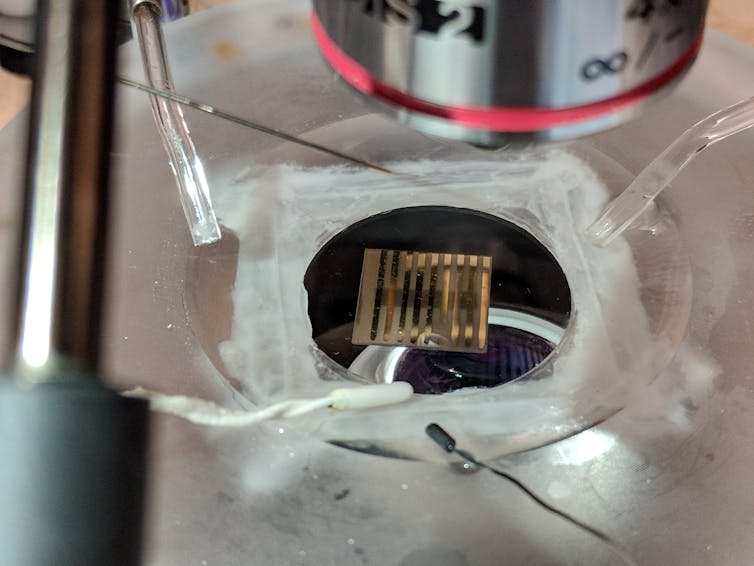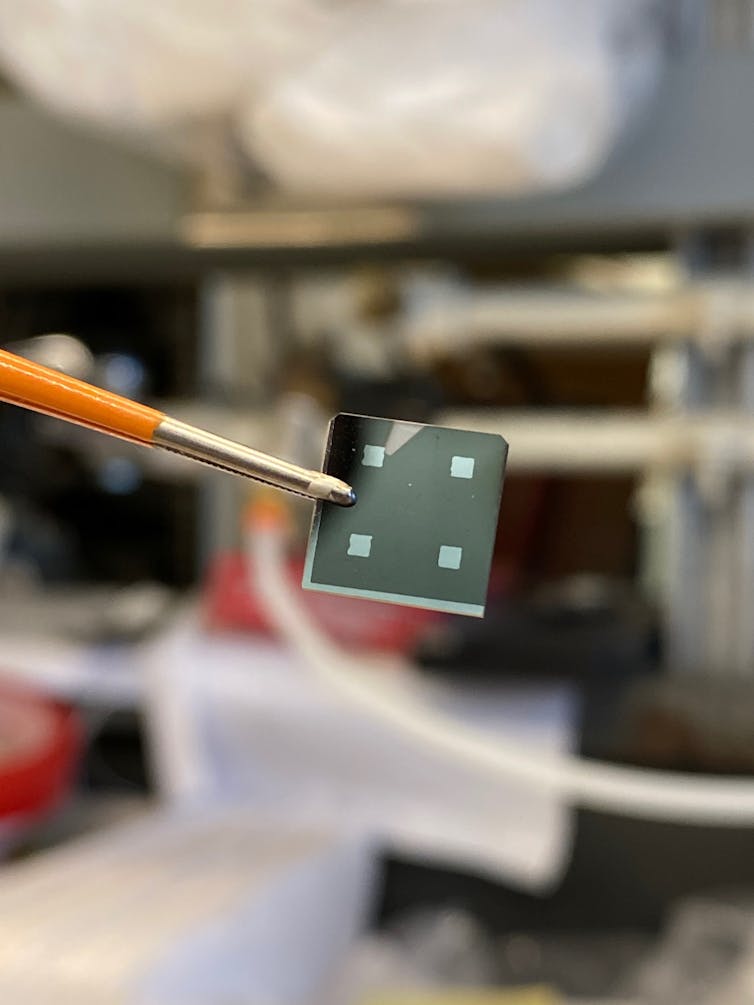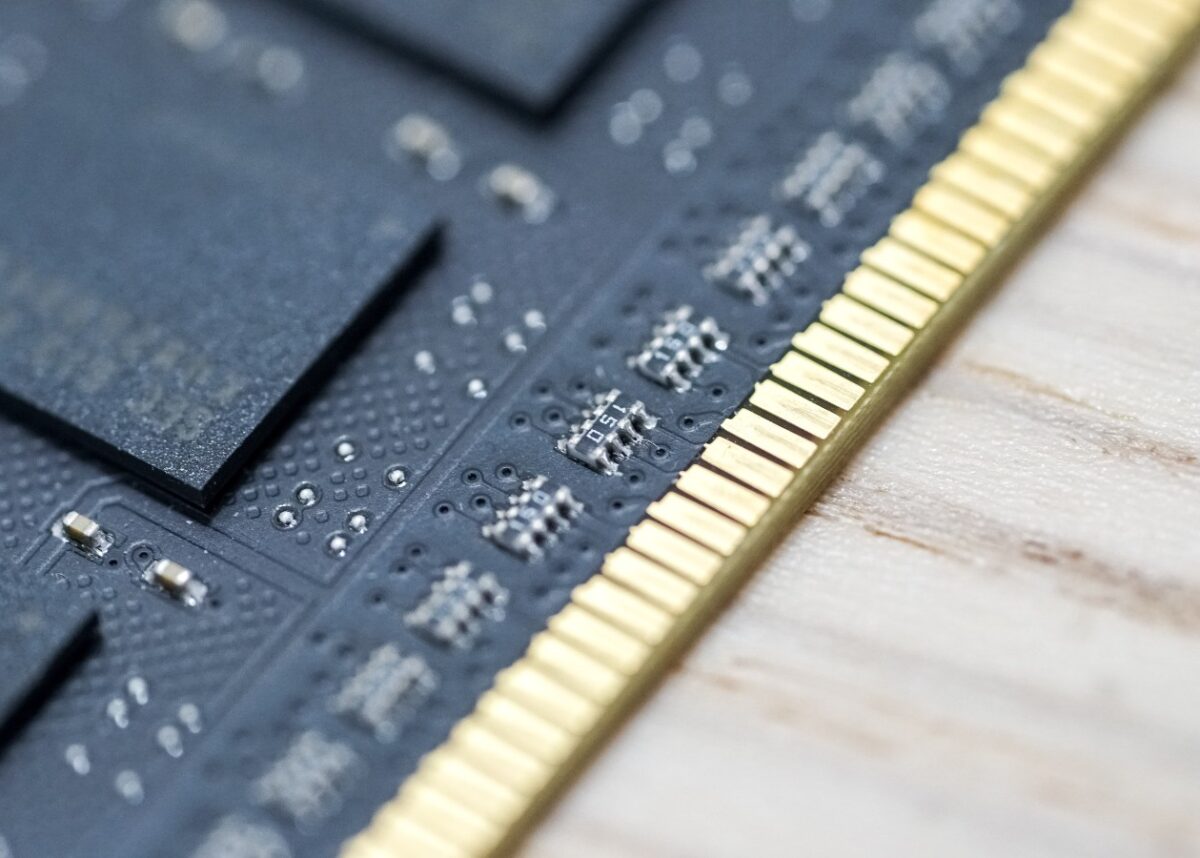Shriram Ramanathan, Purdue University
The Research Brief is a short take about interesting academic work.
The big idea
A unique material, nickel oxide demonstrates the ability to learn things about its environment in a way that emulates the most basic learning abilities of animals, as my colleagues and I describe in a new paper.
For over half a century, neuroscientists have studied sea slugs to understand basic animal learning. Two fundamental concepts of learning are habituation and sensitization. Habituation occurs when an organism’s response to a repeated stimulus continuously decreases. When researchers first touch a sea slug, its gills retract. But the more they touch the slug, the less it retracts its gills. Sensitization is an organism’s extreme reaction to a harmful or unexpected stimulus. If researchers then shock a sea slug, it will retract its gills much more dramatically than when it was merely touched. This is sensitization.

Nickel oxide has features that are strikingly similar to this learning behavior. Instead of gills retracting, we measured the change in electrical conductivity of the material. The stimulus, instead of a finger poke, was repeatedly alternating the environment of the nickel oxide between normal air and hydrogen gas.
Nickel oxide is interesting because when you expose it to hydrogen gas, its crystalline structure subtly changes and more electrons become available to generate an electrical current. In our experiment, we kept switching between the hydrogen-only and regular air environments. You would expect the electrical conductivity to oscillate up and down directly in relation to the exposure to hydrogen or air. But just as with the sea slugs, the change in conductivity of the nickel oxide slowly went down the more we stimulated it. It got habituated to the hydrogen.
When we exposed the material to bright light or ozone, though, it rapidly changed its conductivity – the same way a slug will always respond dramatically to a small shock.

Why it matters
The ability to learn, remember or forget information as needed is a powerful skill for any animal or machine. So far, the vast majority of research in the field of artificial intelligence has focused on software-based approaches to machine learning, with far less effort dedicated to studying the learning abilities of materials.
At the center of these two related areas of research lies the field of brain-inspired computers. For intelligence to be encoded into hardware, scientists need semiconductors that can learn from past experience and adapt to dynamic environments in a physical way similar to that of neurons in animal brains. Our new research showing how nickel oxide demonstrates features of learning hints at how this or similar materials could serve as building blocks for computers of the future.
What still isn’t known
Before such materials can be incorporated into computer chips there are some knowledge gaps that need to be addressed. For instance, it is not yet clear at what time scales a material needs to learn for it to be useful in electrical systems. How quickly does something need to learn or forget to be useful? Another unknown is how or whether it is possible to change the structure of nickel oxide to produce different learning behaviors.

What’s next
In addition to further experiments on the material itself, there are theoretical lessons to explore. Observations of collective behavior of animals in nature – such as bird flocks and schools of fish – have inspired researchers to develop fields of AI like swarm intelligence. In a similar fashion, the interesting collective motion of atoms and electrons in materials could inspire AI and hardware design in the future.
As new materials that can accommodate mobile atoms are discovered, I am optimistic we will see further breakthroughs that can bring researchers one step closer to designing computers that emulate animal brains.
Shriram Ramanathan, Professor of Materials Engineering, Purdue University
This article is republished from The Conversation under a Creative Commons license. Read the original article.












